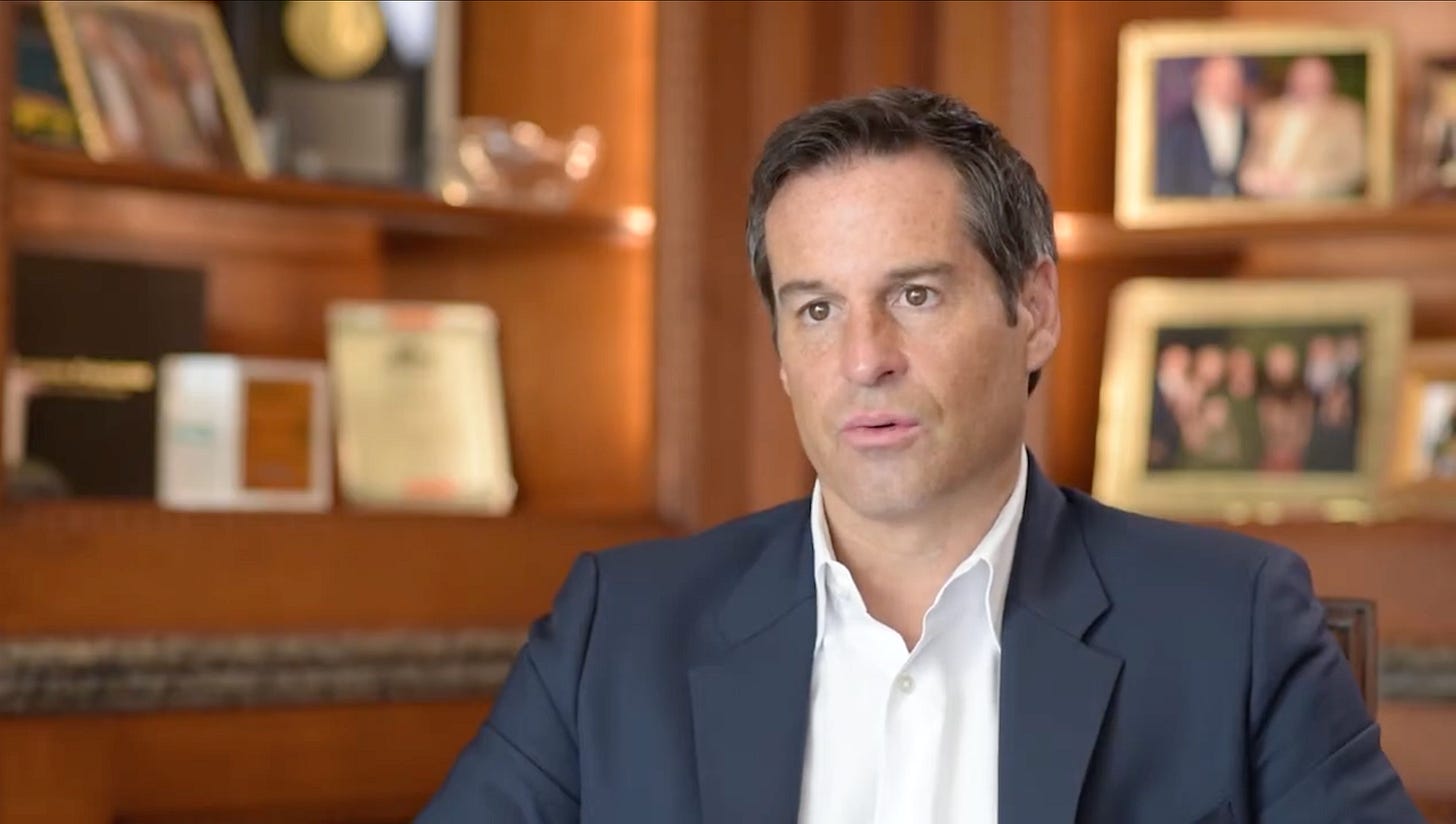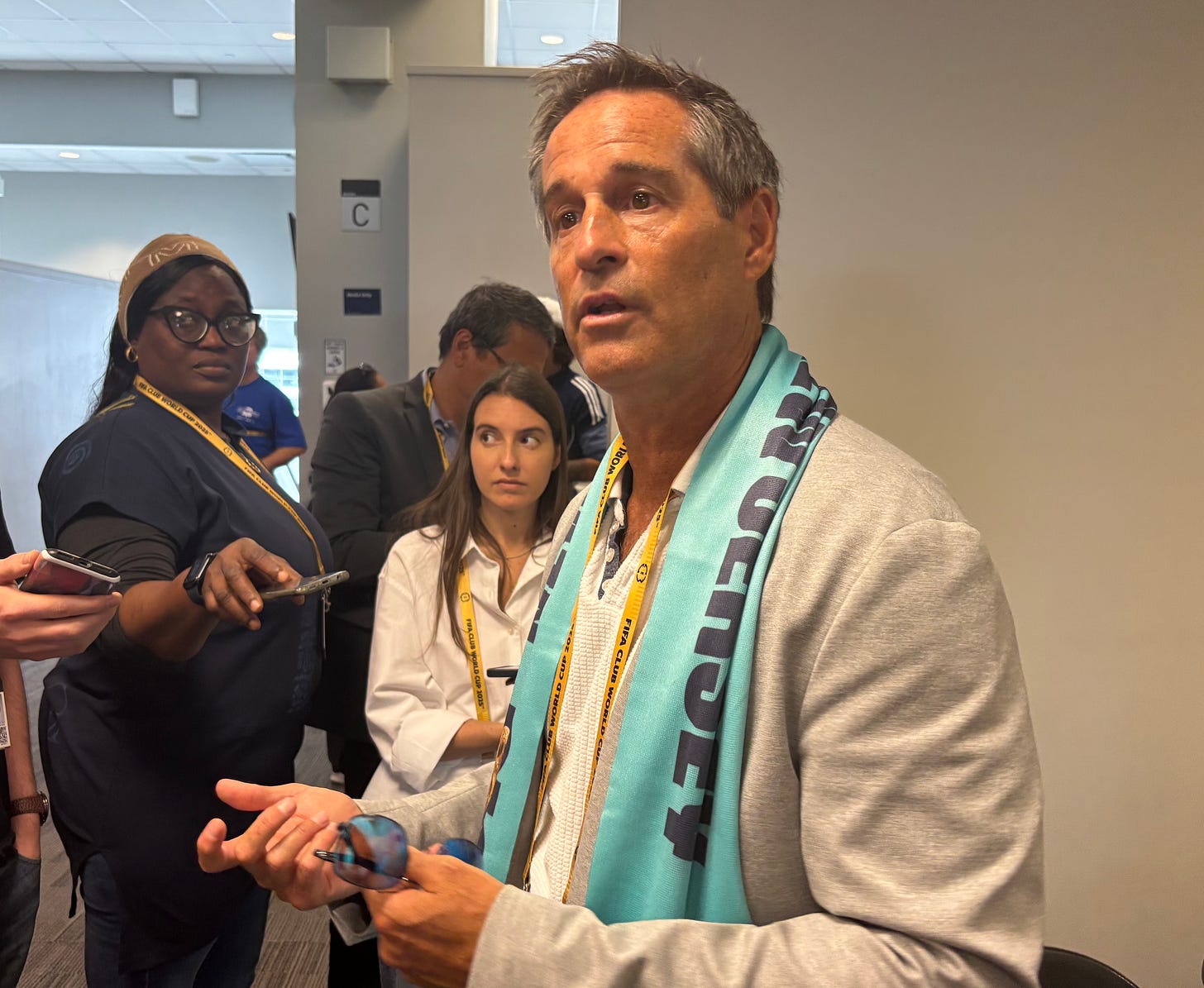Harkes on the past and promise of American soccer
The USMNT legend on how far the game has come since USA '94
John Harkes remembers the moment he fell in love with soccer. It was as a ball boy during New York Cosmos games at Giants Stadium, standing in the tunnel beside legends like Pele and Franz Beckenbauer.
“I was in the tunnel as a little kid and always looking up at them,” the New Jersey native recalled. “That's what gave me passion for the game. That’s what pushed me on.”
Harkes would go on to play for the United States at the 1990 and ’94 World Cups. He moved to England in 1990, playing with Sheffield Wednesday until 1993. In 1992, Harkes became the first American of the modern era to play in the FA Cup final.
Harkes, the son of Scottish immigrants to the U.S., returned to play club soccer in the U.S. with the launch of Major league Soccer in 1996. He was one of the stars for D.C. United that won MLS Cup in three of the league’s first four seasons.
The former U.S. national team mainstay, where he earned 90 senior caps, fondly recalled his playing days and how far the game has come in this country over the last three decades.
In a reflective conversation before the start of Sunday’s Club World Cup final at MetLife Stadium, Harkes talked about the challenges and opportunities that lie ahead for American soccer less than a year before the World Cup returns to the New York-New Jersey area. MetLife Stadium will host eight World Cup matches, including the final, as the New York-New Jersey host committee works to to highlight the region.
Harkes’ appearance at the final was a chance to promote his native New Jersey, but also reminisce about the past. The midfielder was part of a generation that played when the U.S. men’s team was still fighting for both domestic and international respect.
“We had to break down a lot of barriers,” he said. “Especially in the days where people didn't even accept that the Americans played the game.”
Alongside childhood friends and fellow trailblazers Tab Ramos and Tony Meola — all hailing from the soccer-rich Jersey town of Kearney — Harkes helped push the U.S. to a breakthrough moment: Qualifying for the 1990 World Cup in Italy, the team’s first appearance at the tournament in 40 years.
“We had everything against us,” he remembered of the crucial qualifying match in Trinidad and Tobago. “We needed at least a draw in that game, which was difficult — and we did it.”
The USMNT won 1-0 on a now-famous Paul Caligiuri goal, forever changing the trajectory of the sport in this country. Harkes said that defiant spirit defined the team then as it does now.
“We wanted to make sure that the world understood that we can play the game. That was No. 1,” he added.
For Harkes, the story of U.S. soccer’s rise is as much about community and culture as it is about competition.
“We have always grown up and fought for the game. … Certainly, this stadium has changed dramatically,” Harkes said, referring to MetLife Stadium and its previous incarnation when it was Giants Stadium.
Harkes said he’s excited about next summer’s World Cup and what the New York-area can offer fans and teams.
“We have more opportunities now,” he said, pointing to the upcoming World Cup matches at MetLife Stadium and the expanding landscape of American soccer. “Enjoy the moment as we build on to it.”
Looking ahead to the U.S. team in 2026, Harkes said he’s cautiously optimistic. He knows the challenges of playing on the biggest stage, from the blistering heat of a World Cup match in 1994 against Colombia at the Rose Bowl, to the humidity players today have endured during the Club World Cup.
“You suffer if you don't adapt,” Harkes said bluntly. “You have to adapt or you die. And maybe that’s adjusting your style [to counter the heat] — possessing more, countering into spaces. You’ve got to recognize the strengths and weaknesses within your own group and play to that.”
For the U.S., the true test will go beyond tactics.
“There’s not a lot of countries that have won the World Cup,” Harkes said. “You need a little bit of luck, self-belief and confidence. If that doesn't bring the best, hardworking grit out of you, I don't know what does.”
It’s that grit, Harkes added, that can help the Americans succeed on home soil.
“I’m an optimistic guy, I’ve always used optimism to give me an advantage in life — as a father, as a husband, as a player, as a coach, whatever it is,” he said. “And I’m optimistic about this U.S. team for next year.”






